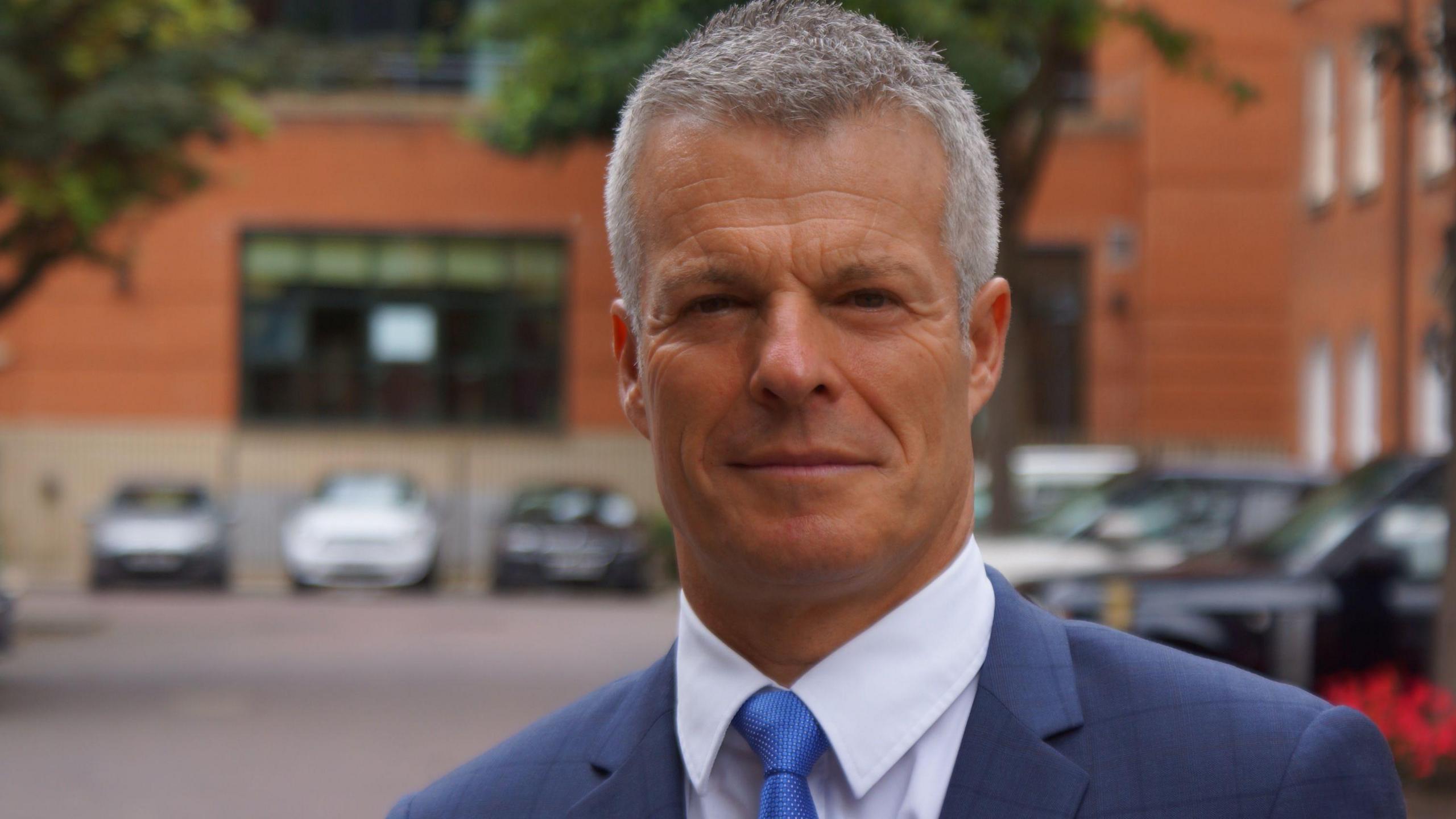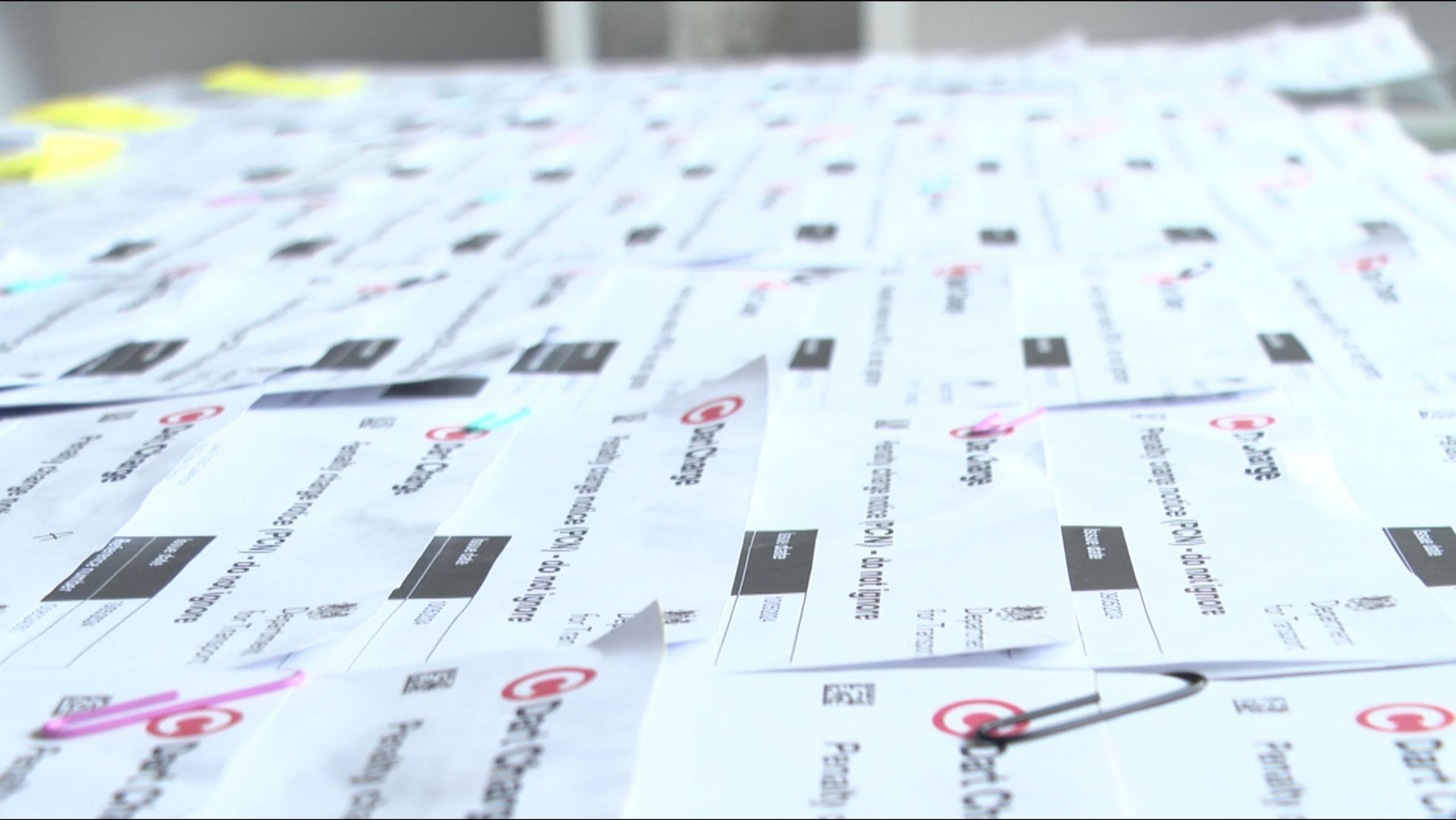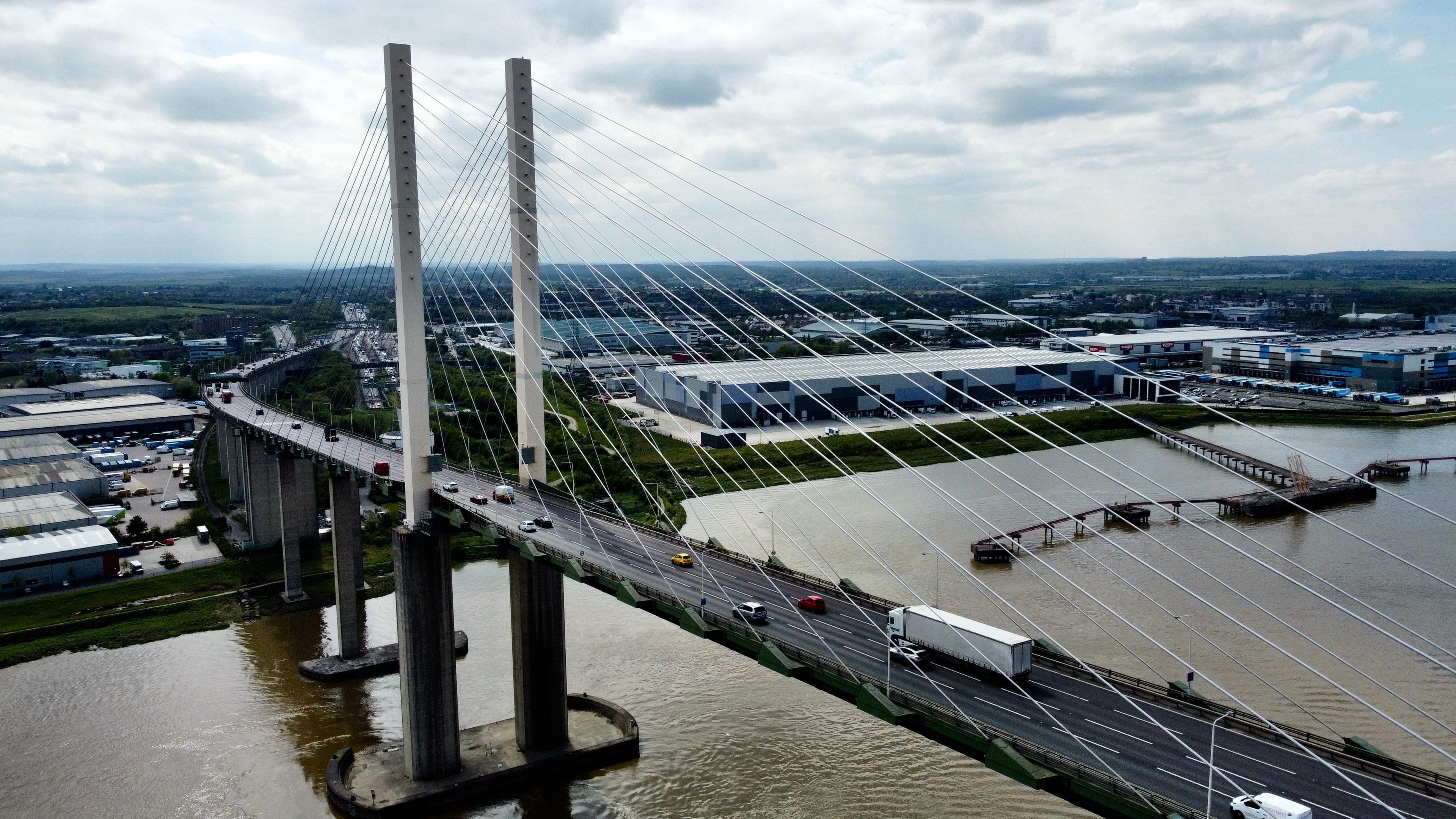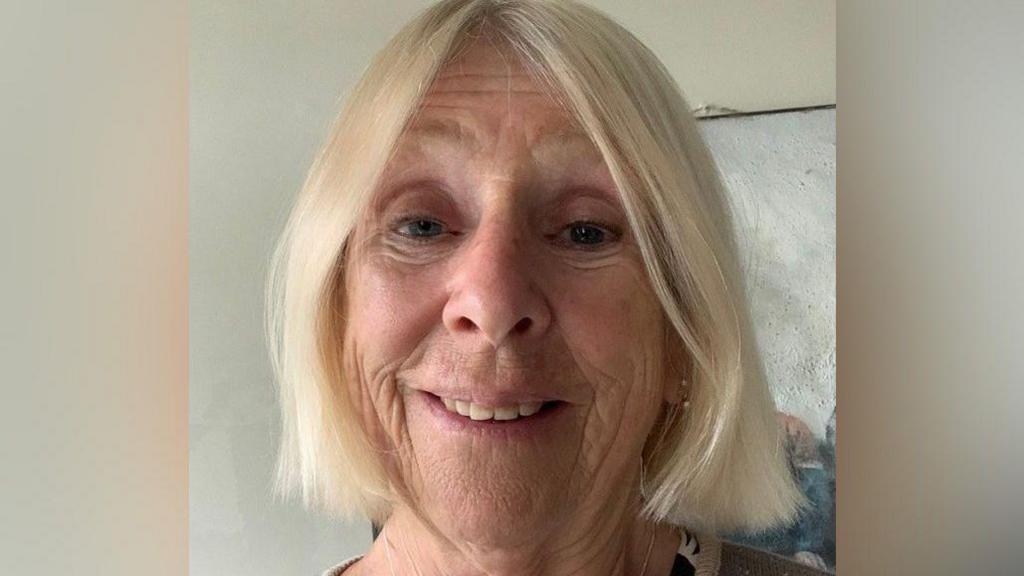Dart Charge fine regulations 'must be changed'

Lawyer Nick Freeman said the situation was "crying out for legal change".
- Published
A motoring lawyer said the rules surrounding fines issued to those who fail to pay Dartford Crossing fees are "grossly unfair" and must be brought in line with the law for speeding offences.
The Road Traffic Offenders Act 1988, external said vehicle owners must be informed within 14 days of an alleged speeding offence.
However, Dart Charge users have told the BBC they had received penalty notices for unpaid crossings months after their journeys took place.
National Highways said all fines were now being issued within a fortnight of the alleged contraventions taking place.

Dart Charge users have complained to the BBC that fines have arrived months after the crossing was made
Nick Freeman, a lawyer popularly known as Mr Loophole, said the situation was "crying out for legal change".
Mr Freeman, who specialises in road traffic law, said drivers "need to be told at an early stage" so they can keep the necessary evidence to challenge fines they deem unfair.
He said that since the enforcement of most road offences was done using camera technology, "the whole process is automated, there's no human contact" meaning there was "no excuse" for delays in issuing penalty notices.

A BBC Freedom of Information Request showed more than two million people received Dart Charge fines since a new system was launched in July 2023
A BBC investigation has previously revealed Dart Charge users had experienced problems with their accounts following a change in system operator in July 2023.
It meant payments for crossings were not made on time which caused a rise in fines issued.
For many, penalty notices did also not arrive until four, five or even six months after the crossing was made.
As a result, many were unaware of problems with their accounts.

Helga Wood told how she and her husband ended up paying £420 to an enforcement agency used to collect outstanding Dart Charge debts, amid fears her vehicles would be clamped
In response to the BBC's reporting, hundreds of people got in touch to share their Dartford Crossing experiences.
One of them was Mark Collins, from Thurrock in Essex, who said he validated his payment card in August 2023 following a prompt from Dart Charge.
However, he began receiving "six month's worth" of penalty notices in January 2024.
He said he contacted Dart Charge and was told his details had been "deleted from the system".
Mr Collins said he wanted to know why he had not been contacted earlier about the problem, particularly as he had put additional vehicles on his account in the meantime.
He said although he has so far not had to pay any fines and has been allowed to settle the initial crossing fee, he thinks "the system [is] an absolute disgrace and not fit for purpose".
Helga Wood, from Deal in Kent, said she and her husband paid £420 to CEDR, the enforcement agency used to collect outstanding Dart Charge debts, amid fears her vehicles would be clamped.
She said the payment related to four unpaid journeys, one made in their camper van and another using their car - both of which are on their Dart Charge account.
Mrs Wood added that the journeys were made in August and September last year, but they did not receive any fines until February 2024.
She described the situation as "absolutely ridiculous" and said they had not yet heard back about their appeal.
'Never been anywhere near it'
Meanwhile, Gordon Burns said he received multiple charge notices by post in January this year, for crossings apparently made in Autumn 2023 in a vehicle he does not own.
"I have never crossed Dartford Crossing and have never been anywhere near it in my life, ever," he said.
"I live in Scotland."
He added that automatic number plate recognition cameras had identified a van with a similar license plate to his car.
While he did not have to pay the fine, he remained concerned about "Dartford Crossing's sloppy identification processes".
'We were wrongly fined for Dart Charge during a funeral'
- Published24 July 2024
Dart Charge firm repaid £3.25m in failed contract
- Published26 July 2024
People lose £5m in unused Dart crossing payments
- Published25 July 2024
National Highways said that following the change in service provider in July 2023, "Dart Charge extended the time customers had to pay for crossings and for account holders to re-validate payment cards due to the initial technical difficulties faced".
It added: "During this period Penalty Charge notices (PCNs) were held to allow users more time to pay or take other actions. This meant that when fines were issued the time since the crossing date was longer than it would usually be."
It added that all outstanding PCNs have now been sent out and PCNs are now being issued "within one to two weeks of the crossing being made".
A spokesperson for the Department for Transport said: “The existing legislation around penalty charge notices is robust and fair.
“National Highways aims to issue notices as soon as possible to allow people sufficient time to address any penalties and we understand that many of these cases have already been resolved.”
Get in touch
Do you have a story to share with the BBC East of England investigations team?